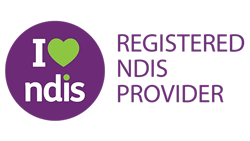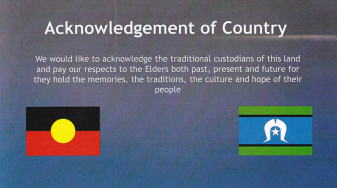NDIS Provider

The NDIS aims to support a better life for Australians with significant permanent disabilities along with their families and carers. As a registered NDIS provider, Point Care’s priority is to make sure that people with a disability continue to get the support they need. Your plan manager and support coordinator will take it up from there.
Point Care respects and fully commits to upholding the rights of all people, including those with disabilities. We are also dedicated to ensuring you are aware of your rights and responsibilities and are supported to exercise them. As an NDIS participant, you can access our support services across Queensland’s Central Coast and beyond including Cairns, Townsville, Mackay, Rockhampton, Gladstone, Bundaberg, Hervey Bay, Maryborough, Gympie, Toowoomba, the Sunshine Coast, Brisbane, Ipswich, Loganholme, Nambour, the Fraser Coast, Maroochydore and Caboolture.
Your Life Is Your Right
- Promote, uphold and respect your legal and human rights;
- Respect your culture, diversity, values and beliefs;
- Respect and protect your dignity and right to privacy;
- Are free from violence, abuse, neglect, exploitation or discrimination; and
- Allow you to exercise informed choice and control.


It is Our Duty to
- Tell you about and uphold your rights;
- Provide supports in a way that promotes, upholds and respects your rights to freedom of expression, self-determination and decision-making;
- Support you to make informed choices, exercise control and maximise your independence in relation to the supports we provide;
- Respect your autonomy, including your right to intimacy and sexual expression;
- Provide you sufficient time to consider and review your support options and seek advice if required, at any stage of our service delivery;
- Support you to access an advocate (including an independent advocate) of your choosing;
- Support you to engage with your family, friends and chosen community in the ways you want to;
- Treat you with fairly, with courtesy, dignity and respect and without discrimination;
- Involve you in decisions about your supports, as well as our programs and policies;
- Provide services that consider and respect your lifestyle, cultural, linguistic and religious background and preferences;
- Protect your personal information and only use it for the right reasons;
- Support you to provide us with feedback on our service, including complaints;
- Promptly address enquiries and complaints about the supports you are receiving;
- Support you to connect with other services, including advocates, interpreters and translators, if needed;
- Support you to have a person to speak on your behalf for any purpose; and
- Provide safe and appropriate services that are culturally relevant and support your needs and goals
NDIS Provider FAQs
Who is eligible to access NDIS funding, and how can I determine if I am eligible?
The National Disability Insurance Scheme (NDIS) provides support and services to people with permanent and significant disability. To be eligible for the NDIS, you must:
- Be an Australian citizen, permanent resident or hold a protected Special Category Visa
- Be aged under 65 years old
- Meet the disability or early intervention requirements
- Live in an NDIS area
You can determine your eligibility for the NDIS by completing the NDIS Access Checklist. If you are eligible, you can then apply for access to the NDIS.
What types of services and supports are covered under the NDIS?
The NDIS provides funding for a wide range of supports and services, including:
- Assistive technology and equipment
- Home modifications
- Occupational therapy and physiotherapy
- Speech therapy and language pathology
- Personal care and domestic assistance
- Social and recreational activities
- Employment support and training
- Specialist disability accommodation
The specific supports and services you may be eligible for will depend on your individual needs and goals.
How can Point Care help me navigate the NDIS process and access the services and supports I need?
Point Care is a registered NDIS provider, offering a range of services to help you navigate the NDIS process and access the supports and services you need. Our experienced team can assist with:
- NDIS pre-planning and support coordination
- Plan management
- Support worker recruitment and management
- NDIS training and workshops
We can also provide ongoing support to help you achieve your goals and get the most out of your NDIS plan.
How can the NDIS support individuals with mental health conditions?
The NDIS can provide funding for a range of supports and services to assist individuals with mental health conditions, including:
- Access to mental health professionals, such as psychologists and psychiatrists
- Assistance with daily living activities
- Social and recreational activities
- Employment support and training
- Access to specialist mental health accommodation and supported living arrangements
To access NDIS funding for mental health support, you will need to demonstrate that your mental health condition has a significant and ongoing impact on your daily life.
What is the NDIS planning process and how can I prepare for it?
The NDIS planning process is where you work with an NDIS planner to create your individualised NDIS plan. This plan outlines your goals, needs and the supports and services you require to achieve them. To prepare for your planning meeting, it can be helpful to gather information about your current supports and services, your goals and aspirations and any other relevant information about your disability.
How long does it take to get an NDIS plan?
The time it takes to get an NDIS plan can vary depending on your individual circumstances. Once you have completed the NDIS access process, you will be assigned an NDIS planner who will work with you to create your plan. The planning meeting is usually held within 3-6 weeks of your eligibility being confirmed. Once your plan is approved, it can take up to two weeks for funding to be available.
Can I change my NDIS plan if my needs or goals change?
Yes, you can request a plan review if your needs or goals change. You can do this by contacting the NDIS or your NDIS planner. Your plan will be reviewed every 12 months to ensure it continues to meet your needs.
Can I choose my own NDIS service provider?
Yes, as an NDIS participant, you have the right to choose your own service providers. This means you can choose to work with providers that best meet your needs and goals.
Can I receive both NDIS funding and other government support?
Yes, you may be eligible to receive other government support in addition to your NDIS funding. This could include support from the Department of Social Services, the Department of Health or your state or territory government. However, it’s important to note that there are rules around how these supports can be used together, so it’s important to seek advice before accessing multiple funding sources.
























